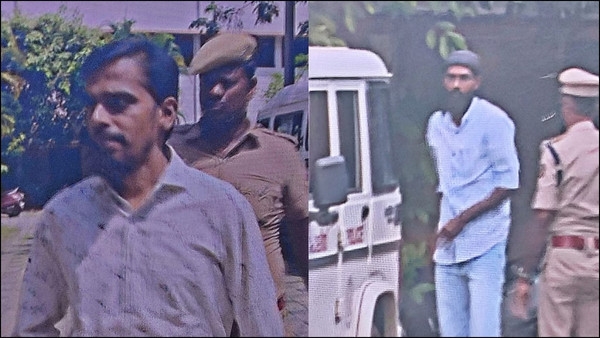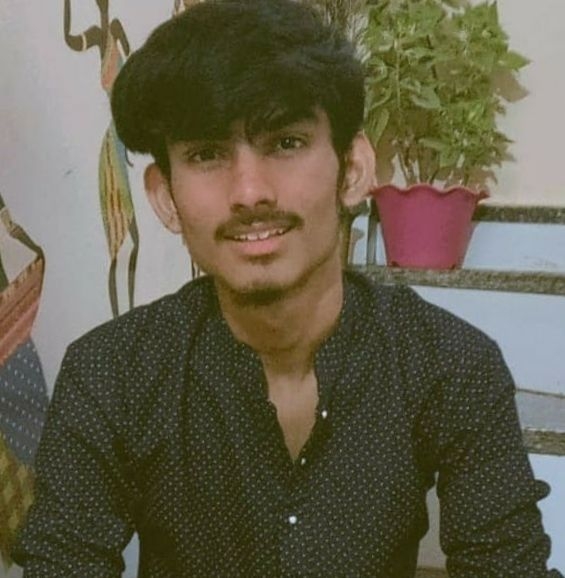NIA Deals a Firm Blow to Islamist Terror Networks; Azarudeen and Hidayathullah Arrested
02 Oct 2025 13:36:43

In a landmark verdict against the spread of radicalisation in South India, the National Investigation Agency (NIA) has exposed the dangerous designs of radical Islamist networks in Bharat. The NIA Special Court in Chennai has sentenced two conspirators, H. Mohammed Azarudeen and Y. Sheik Hidayathullah, both from Coimbatore’s Ukkadam locality, to eight years of rigorous imprisonment for promoting and recruiting on behalf of the global terror organisation ISIS.
The case dates back to June 2019, when the NIA, acting on its own initiative, launched an investigation into the growth of an ISIS-inspired module in Coimbatore. What followed was the unravelling of a carefully constructed web of radicalisation and recruitment. Azarudeen and Hidayathullah, deeply indoctrinated in extremist Islamist ideology, were running secret WhatsApp groups, spreading terrorist propaganda, and brainwashing vulnerable youth with violent videos, bomb-making instructions, and speeches glorifying terror masterminds.
Plotting Young Minds into Terrorism

The NIA’s suo motu case of 2019 revealed a dangerous conspiracy aimed at creating a terror network across South India. The investigation showed that the accused were plotting to recruit susceptible young individuals for terrorist attacks, with a particular focus on major cities in Kerala and Tamil Nadu.
Prosecutors said that Azarudeen and Hidayathullah operated as active members of ISIS, using digital platforms and secrecy to spread their agenda. They ran private social media groups, especially on WhatsApp, and conducted secret ‘Bayan’ classes to lure and indoctrinate youth into the organisation.
Forensic examinations of their seized digital devices exposed the full scope of their activities. Investigators recovered a huge cache of ISIS-related propaganda, including posters, videos, and links depicting violent killings, bomb-making tutorials, hostage executions, and guidance on evading online surveillance. They had also downloaded speeches of infamous radical leaders, including Zahran Hashim, the mastermind behind the 2019 Easter Sunday bombings in Sri Lanka.
The NIA further noted that both men had been involved in promoting ISIS activities since 2017. Their operations included travelling to Kerala to meet associates and spreading their support for the terror outfit.
Attack near the Arulmigu Kottai Sangameshwarar Thirukovil Temple

The two convicts have also been named in a separate chargesheet linked to the 2022 Coimbatore car bomb case. The case involved their associate, Jameesha Mubin, who died while attempting an ISIS-inspired Vehicle-Borne Improvised Explosive Device (VB-IED) attack outside the ancient Arulmigu Kottai Sangameshwarar Thirukovil temple in Coimbatore.
The NIA investigation established a direct connection, showing that Mubin’s attack was motivated by revenge. His primary objective was to retaliate against the 2019 arrest and prolonged incarceration of his mentor, Mohammed Azarudeen, who had indoctrinated him into ISIS ideology.
Before his 2019 arrest, Azarudeen played a key role in radicalising Mubin and others through his Bayan classes. Even after being imprisoned, Azarudeen maintained influence, as Mubin continued to visit him in jail for guidance.
The probe also revealed the active role of Sheik Hidayathullah, who was out on bail in the recruitment case. He was found to have further groomed Mubin and facilitated preparations for the Coimbatore car bomb attack. His actions were crucial in enabling the suicide bombing attempt, which ultimately ended in Mubin’s own death.
Article by

Kewali Kabir Jain
Journalism Student, Makhanlal Chaturvedi National University of Journalism and Communication